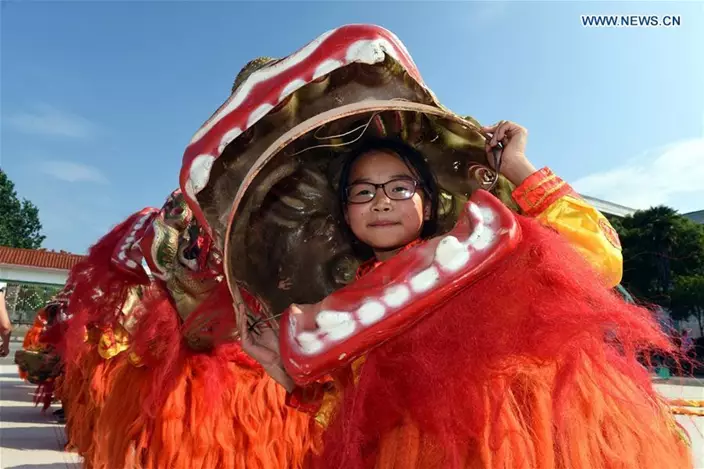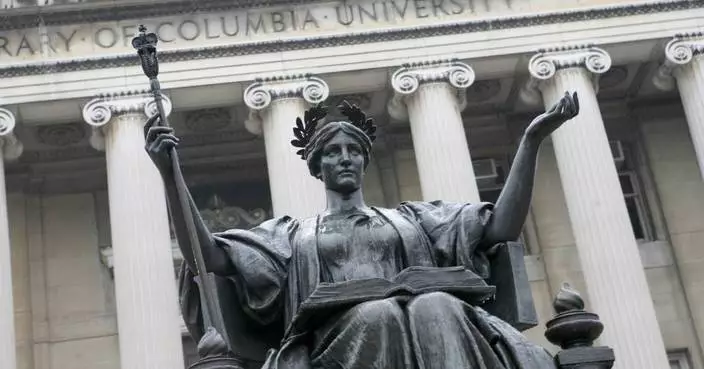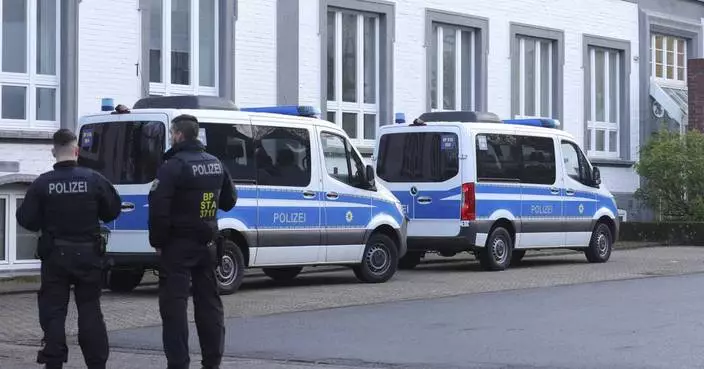The school has introduced lion dance class since 2015. Huagai lion dance, with a history of over 700 years, was listed as the provincial intangible cultural heritage in 2013.

Students practise Huagai lion dance at Wanhe central primary school in Taihe County, east China's Jiangxi Province.

MOSCOW, Idaho (AP) — Bryan Kohberger, the man charged in the deaths of four University of Idaho students in late 2022, was out for a drive the night they were killed, his attorneys said in a new court filing that lays out more details of the alibi defense he intends to use at his trial.
Ethan Chapin, Xana Kernodle, Madison Mogen and Kaylee Goncalves were stabbed to death at a rental home near the university campus in Moscow, Idaho, early on Nov. 13, 2022.
Kohberger, who was then a criminal justice student at Washington State University in nearby Pullman, Washington, has been charged with four counts of murder. Prosecutors say they will seek the death penalty if he is convicted.
Authorities have said that cellphone data or surveillance video shows that Kohberger visited the victims' neighborhood at least a dozen times before the killings; that he traveled in the region that night, returning to Pullman along a roundabout route; and that his DNA was found at the crime scene.
His phone, however, was not communicating with his cellphone provider during about a two-hour period when the attacks occurred — consistent with him having turned it off to avoid being placed at the murder scene, police said.
Anne Taylor, Kohberger's public defender, wrote in a court filing late Wednesday that Kohberger was an avid runner and hiker who frequently went out for drives late at night.
Under Idaho law, defendants may be required to notify prosecutors in advance of any alibi defense. In a filing last August, Taylor wrote that Kohberger's alibi was that he was out driving alone that night, as he often did. Wednesday's document offered more details, including at least one of his destinations — Wawawai Park, along the Snake River southwest of Pullman — in the opposite direction from Moscow.
“Mr. Kohberger was out driving in the early morning hours of November 13, 2022; as he often did to hike and run and/or see the moon and stars,” Taylor wrote. “He drove throughout the area south of Pullman, Washington, west of Moscow, Idaho including Wawawai Park.”
The filing also detailed that the defense intends to offer the testimony of an expert in cellphone and cell tower data to support the notion that Kohberger did not travel east along the main road connecting Pullman and Moscow that night, Taylor wrote.
Police arrested Kohberger, 29, more than six weeks after the killings, locating him at his parents' home in eastern Pennsylvania, where he had gone during winter break.
No date has been set for the trial.

FILE - Bryan Kohberger, right, is escorted into a courtroom for a hearing in Latah County District Court, Sept. 13, 2023, in Moscow, Idaho. Kohberger, the man charged in the deaths of four University of Idaho students in late 2022, was out for a drive the night they were killed, his attorneys said in a new court filing Wednesday, April 17, 2024, that lays out more details of the alibi defense he intends to use at his trial. (AP Photo/Ted S. Warren, Pool, File)












